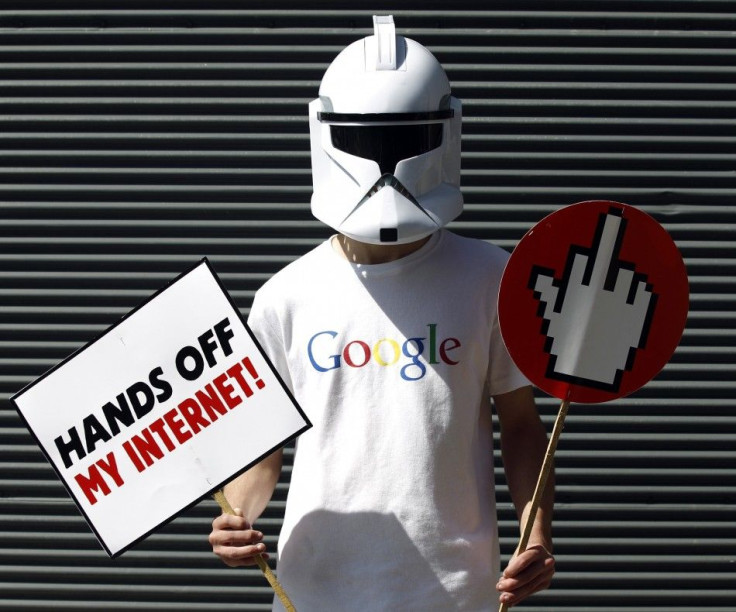Top Tech Leaders from Google, Yahoo, Twitter Oppose Stop Online Piracy Act

Sixteen top technology leaders -- including the founders of Google, Netscape, Yahoo and eBay -- published full-page advertisements Wednesday opposing the pending Stop Online Piracy Act (SOPA) in Congress.
We've all had the good fortune to found Internet companies in a regulatory climate that promotes entrepreneurship, innovation and the creation of content and free expression online, the newspaper ads read.
However, the signers, including Google's Sergey Brin, Netscape's Marc Andreesen and eBay's Pierre Omidyar, worry that SOPA and the related Protect IP Act will undermine the framework of free expression.
The signers, including Jack Dorsey of Twitter, Mitchell Baker of Firefox, Caterina Fake of Flickr, David Filo of Yahoo, Reid Hoffman of LinkedIn, Chad Hurley of YouTube, Brewster Kahle of the Internet Archive, Elon Musk of Paypal, Biz Stone of Twitter, Jimmy Wales of Wikipedia and Evan Williams of Blogger and Twitter, warn that passage of SOPA could harm civil liberties.
Under their interpretation, online services would be required to monitor what users link to and upload, which would have a chilling effect on innovation.
Also, Web site owners would be denied legal due process. Washington would have Internet censorship rights similar to techniques used by China, Malaysia and Iran.
Finally, online security would be changed by changing the basic structure of the Internet, the ad claims.
The full page ads in The New York Times and other dailies follow previous ads by record companies and publishers in support of SOPA. Among them were Viacom, TimeWarner, Disney and unions including the American Federation of Television and Radio Artists and the American Federation of Musicians.
The bill is pending in the U.S. House Judiciary Committee chaired by Rep. Lamar Smith (R-Tex.) who heard testimony in opposition from many of the same technology figures in November. On Monday, Smith amended the language narrowing definitions that cover foreign rogue Web sites that mainly sell or stream copyright-protected material.
Last week, a bipartisan rival, the Online Protection and Enforcement of Digital Trade Act (OPEN) was introduced by Sen. Ron Wyden (D-Ore.) and Rep. Darrell Issa (R-Calif.) that would assign digital copyright enforcement to the U.S. International Trade Commission.
Earlier, technology groups such as the Business Software Alliance had backed SOPA but withdrew it for fears its powers were excessive.
The tech leaders' ad, though, may strike a chord with the public because several of the signers were born in countries that were not democratic at the time. Brin, 38, was born in the Soviet Union, while Omidyar, 44, was born in France to Iranian parents who did not return to their homeland.
Yahoo's Yang, 43, was born in Taiwan before its democratization and was brought to the U.S. in 1978.
© Copyright IBTimes 2024. All rights reserved.












